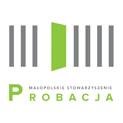
In October 2018 we run the first, pilot program of detection of addiction in the workplace, now a regular on our schedule.
We called the program ‘Look Closer‘
Why?
Addiction prevention in the workplace is nonexistent. In professional settings the subject of a colleague`s addiction to alcohol, intoxicants or psychoactive substances is taboo, therefore virtually never raised.
The silence of the person with the problem and the people surrounding him/her can be blamed for critical situations, where uncontrolled behaviour brings on loss of a job, breaking the law or poses an actual threat to life, also of coworkers.
There are no guidelines or protocols of safe steps drafted for critical situations involving a colleague with addiction problem, he/she cannot ask for help or is afraid to do it, while the coworkers or supervisors do not know how to offer help.
Inevitable crisis approaches fast and does not leave room for damage control. It is crucial to emphasize that in every profession a person on the verge of losing control with drug or psychoactive substance use poses a real and serious threat to himself and third parties. However, there are professional groups, where due to the nature of profession itself, the risk to life is dramatically higher. This applies especially to firemen and women, employees of the police force, teachers and medical professionals.
The training is scheduled for 8 hours and is divided into two parts: lecture and workshop.
PART ONE: Lecture on legal provisions: matters related to criminal liability, colleague and employer accountability.
PART TWO: is composed of a workshop and role play (drama). This part is run in the form of an open discussion on addiction. We start from gaining knowledge on various addictive substances available on the market including new, designer drugs. We discuss autodiagnosis, focusuing mailny on assesment of own use of substances and available forms of of treatment and addiction therapy. We leard how to decode warning signs and recognize mechanisms running an addicted person. We also propose ways of supporting of people with recognized addiction. We involve our participants in working on communication skills: both communicating our needs and feelings as well as building a connection with the addicted person.
The program takes place in conference rooms of Santorini Hotel in Kraków and is presented to you by two specialized instructors:
Agnieszka Szeliga – Żywioł – addiction therapy specialist
Barbara Wilamowska – lawyer and sociologist, permanent lecturer of the National School of the Judiciary and Prosecution Service.
Everyone interested in the training, please contact us.
The program is financed by the City of Cracow (Gmina Miejska Kraków).

